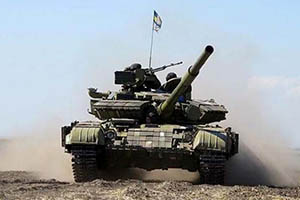War risk insurance
War risks: definition
In most countries, the law does not provide any definition of the notion of war risk. It leaves it to doctrine and jurisprudence to tell foreign wars from civil ones.
 A State or a group of States (the UN) can declare whether a particular conflict corresponds to a foreign war or not, as was the case for the Gulf War. Civil war remains a much blurrier notion.
A State or a group of States (the UN) can declare whether a particular conflict corresponds to a foreign war or not, as was the case for the Gulf War. Civil war remains a much blurrier notion.
Traditionally, insurers use the term political risk to refer to concepts that are similar but often difficult to characterize, such as "risks of civil or foreign war, whether declared or not, mines and all devices of war, piracy, capture, taking or detention by any government or authorities, riots, popular movements, strikes, acts of sabotage or terrorism".
With the exception of the Iraq-Kuwait conflict, the risk of foreign war has practically disappeared over the last decades. It is the risk of attack, act of terrorism which at the end of the 20th century and the beginning of the 21st century worried insurers the most.
Some definitions of political risks
- Foreign war: armed conflict between two or more foreign powers or nations.
- Civil war: armed confrontation between heavily armed and structured individuals or groups of individuals in the same country. The notion of civil war should not be confused with that of riots and popular movements.
- Riot: popular uprising accompanied by violence in reaction to a government measure or to the situation of a part of the population in order to obtain achievement of economic, political or social claims from the government.
- Civil commotion: spontaneous or concerted movement of a disorderly crowd causing damage.
- Piracy: attack perpetrated for private purposes on a ship, aircraft or any other means of transport, with the aim of taking control of it by violence or the threat of violence, illegal detention of persons or property, theft and destruction of property.
- Risk of capture: the taking or detention by any government, authority or group of any person who comes under the control of the enemy during an armed conflict.
- Strike: temporary and collective cessation of work to exhibit discontent.
- Sabotage: violent action perpetrated with a view to hindering the progress or the normal functioning of a service or a company.
- Attack and act of terrorism: action organized in secrecy for ideological, political, ethnic or religious purposes. It is carried out individually or in groups, causing human casualties and partially or totally destroying property. The aim is to create a climate of insecurity, disturb public order or put pressure on the authorities.
Insurance and specificity of the war risk
Being extremely severe and violent, these events which destroy mutuality are depicted by insurers as non-ordinary risks excluded from the standard coverages granted by classic damage insurance policies.
Excluded is not synonymous with uninsurable. For example, political risk coverage can be provided in addition to credit, property damage and transportation insurance. It includes seizure of property by the government or other authorities and its forced abandonment, cancellation of government licenses for operations, impossibility to convert foreign currencies, takeover of foreign-owned companies.
After a long evolution, the position of many countries regarding the risk led to the maintenance of the general exclusion of with the possibility granted to the contracting parties whether or not to include it in the coverage.
Consequently, the French insurance code stipulates in its article L121-8 that: "The insurer shall not be liable, unless otherwise agreed, for losses and damages caused by foreign war, civil war, riots or popular movements.
When these risks are not covered by the contract, the insured shall be required to prove that the loss results from an event other than foreign war; it is up to the insurer to prove that the loss results from civil war, riots or civil commotion.
Insurance war risks pricing
he pricing of war risks, underwritten as an extension of the marine transport coverage, is carried out on a case-by-case basis. It comprises two elements:
- a prime rate set on a yearly basis according to the type of vessel,
- a variable rate linked to the crossing of risk zones.
Each insurance company then determines its level of overload. This can be up to 10 times the prime rate. For example, for Yemen or Libya, these overloads range from 0.5% to 2% of the vessel’s value.
For the ship's hull, shipowners sailing in a declared dangerous zone have three option:
- underwrite additional insurance,
- cover the risk through captives,
- not to underwrite specific coverages.
The insurance of the cargo on board a vessel is not the responsibility of the shipowner. It is the responsibility of the owner of the goods (buyer, seller or intermediary). It is then up to the underwriter of the goods to bear the additional insurance costs.
When a state of war is declared, the automatic war risk coverage of transport insurance policies is generally suspended, with cancellation period being set at 7 days.
In order to limit the damage, insurers are giving ships the opportunity to leave the area within a maximum period of 7 days. Once past this deadline, the war risk coverage is cancelled.